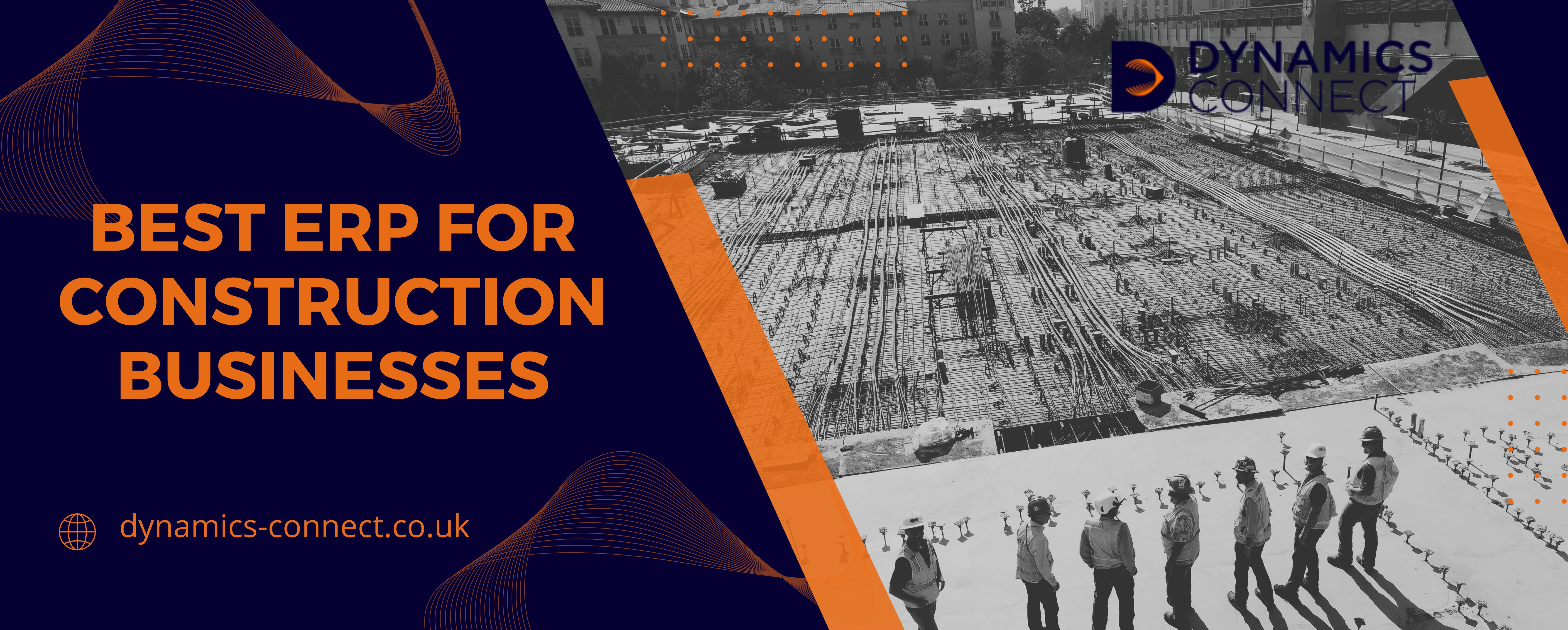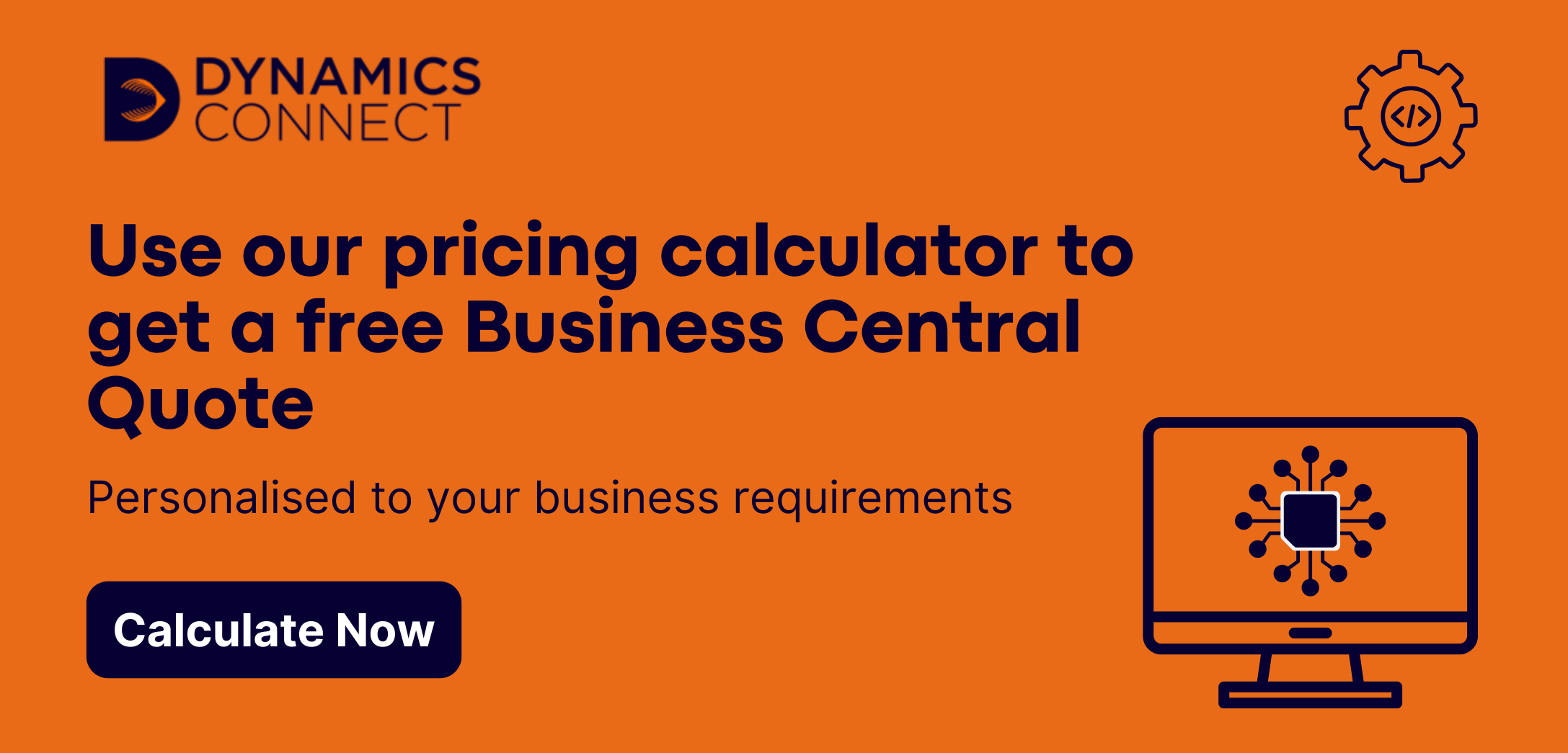
Best ERPs for Construction: Top 8 Solutions for Contractors and Builders (2026)
The construction industry is constantly changing and adapting. With new materials, processes and regulations popping up all the time, construction businesses have to be ready to adapt or risk falling behind. This means efficiency, visibility, and collaboration determine success. With projects growing more complex and margins tightening, contractors can no longer rely on spreadsheets and siloed tools. That’s where ERP (Enterprise Resource Planning) systems are so valuable.
A well-chosen ERP solution centralises project data, integrates financials with operations, and provides real-time insights that help construction firms complete projects on time and within budget. In this article, we’ll explore the key features every construction ERP should have, review the 8 best ERP platforms for contractors in 2026, and provide guidance on how to choose the right one for your business.
Key Features to Look for in Construction ERP
Project accounting and job costing
Construction projects often span months or even years, making it essential to track costs at a granular level. The right ERP should integrate accounting with project management, giving visibility into budgets, forecasts, and profitability. Job costing functionality allows managers to compare estimated vs. actual costs and identify areas of overspending early.
Resource planning and workforce management
Labor shortages and equipment downtime are common challenges in construction. ERP systems help optimise crew schedules, allocate equipment, and forecast resource demand. This ensures projects move forward without costly delays and idle resources.
Document and contract management
From contracts to compliance documents, construction companies deal with endless paperwork. A construction-focused ERP centralises this documentation, supports version control, and makes it accessible to all stakeholders. This reduces disputes and streamlines approvals.
Mobile access and cloud deployment
Construction projects aren’t managed from behind a desk. Cloud-based ERPs with mobile functionality allow field teams to access drawings, update progress, and log expenses in real time. Mobile-friendly systems are now non-negotiable for firms looking to stay competitive.
Microsoft Dynamics 365 Business Central
Best for mid-sized contractors and scalable enterprises
Microsoft Dynamics 365 Business Central is the top ERP choice for construction companies in 2026. Its strengths lie in scalability, integration, and adaptability, making it a strong option for contractors who want to unify operations across finance, projects, and resource management.
Business Central integrates seamlessly with Microsoft’s ecosystem (Teams, Outlook, Power BI etc), allowing contractors to communicate, analyse data, and manage operations in one unified environment. This makes it especially valuable for firms that already rely on Microsoft tools and want an ERP that feels familiar and easy to adopt. And with a very reasonable price point starting at £58 per user per month, it’s affordable for everyone from small businesses to large enterprises.
Key features:
- Robust job costing and project accounting with detailed tracking of estimates vs. actuals
- Seamless integration with Microsoft Teams and Outlook, enabling project collaboration within tools staff already use
- Power BI dashboards for real-time project profitability and labor utilisation reporting
- Automated workflows for approvals, billing, and purchase orders
- Cloud-first deployment with hybrid options for firms not ready to go fully cloud
- Extensive partner ecosystem with construction-specific add-ons
Best suited for: Mid-sized contractors and growing construction firms seeking a scalable solution with deep Microsoft integration.
Oracle NetSuite
Best for large, fast-growing construction firms
Oracle NetSuite is one of the most popular cloud ERPs worldwide and has carved out a place in the construction sector thanks to its financial strength and scalability. It is especially well-suited to firms managing multiple subsidiaries, projects across regions, or international operations. NetSuite’s cloud-first design makes it highly accessible, while its strong reporting tools give executives visibility into profitability across projects. Construction companies that want a powerful, enterprise-grade ERP without the burden of on-premise infrastructure often choose NetSuite.
Key features:
- Multi-entity financial consolidation across subsidiaries, joint ventures, and international divisions
- Project profitability dashboards with drill-down capability to line-item costs
- Strong procurement automation for managing vendors and subcontractors
- Built-in revenue recognition compliance (ASC 606, IFRS 15) tailored to long-term projects
- Pre-built industry-specific modules, including construction financials
- Native mobile app with project tracking and expense approvals
Best suited for: Large and fast-growing construction companies, particularly those with complex or global operations.
Acumatica
Best for flexible deployment and customisation
Acumatica has gained traction in the construction industry as a modern, cloud-based ERP that emphasises flexibility and ease of use. Its Construction Edition includes everything from project accounting to compliance management, giving firms a comprehensive toolkit. Acumatica is especially appealing to companies that need mobile access, as its interface works seamlessly in the field. Its resource-based pricing model also makes it more cost-effective for mid-sized firms that want predictable costs as they grow.
Key features:
- Comprehensive construction-specific dashboards for project managers
- Payroll module with certified payroll reporting for government projects
- Mobile app for time entry, expense tracking, and field updates
- Integration with Procore and DocuSign for document control
- Resource-based licensing ensures no per-user limits, ideal for field-heavy firms
- Subcontract management with retention tracking
Best suited for: Mid-sized and growing construction companies that want a customisable, mobile-friendly ERP with flexible pricing.
SAP S/4HANA
Best for enterprise-level construction firms
SAP S/4HANA is a heavyweight ERP system designed for global enterprises with highly complex operations. Known for its in-memory database, it enables real-time analytics and advanced forecasting that can be game-changing for large construction firms. SAP’s ERP capabilities span finance, supply chain, and workforce management, all underpinned by AI and machine learning tools. While powerful, S/4HANA is often resource-intensive to implement, making it a strategic choice for enterprises with large budgets and IT infrastructure.
Key features:
- In-memory HANA database for instant reporting and “what-if” scenario modeling
- AI-driven predictive project risk analysis
- Global compliance modules, ensuring regulatory coverage in multiple countries
- Integrated materials management for large-scale supply chains
- Pre-built construction templates and workflows from SAP’s industry cloud solutions
- Advanced workforce scheduling for multi-national teams
Best suited for: Large, enterprise-level construction firms with complex global operations and substantial IT budgets.
Sage 300 Construction and Real Estate (CRE)
Best for contractors seeking industry specialisation
Sage 300 CRE is a trusted ERP that has been serving the construction and real estate industries for decades. It provides robust job costing, payroll, and property management tools that are highly tailored to industry needs. Many contractors value its stability and the fact that it was built specifically for construction workflows. While the interface is not as modern as newer platforms, Sage 300 CRE remains one of the most widely adopted construction-focused ERP systems.
Key features:
- Highly detailed job costing with cost codes and categories specific to construction
- AIA billing support for construction contracts
- Payroll processing with union and prevailing wage support
- Change order management integrated directly into project budgets
- Strong property management module for contractors with real estate divisions
- Robust report library tailored to construction compliance requirements
Best suited for: Mid-sized contractors who want a proven, industry-specialised ERP solution.
Viewpoint Vista
Best for project-focused contractors
Viewpoint Vista is an ERP built specifically for construction, with a focus on aligning accounting, project management, and operations. Its strength lies in reducing the disconnect between the office and the field, ensuring that all stakeholders work from the same data. The platform supports compliance management, reporting, and document control in a way that’s intuitive for construction professionals. Contractors often choose Viewpoint Vista for its deep focus on industry workflows rather than being a generalist ERP.
Key features:
- Fully integrated construction accounting and project management
- Field data capture tools for timesheets, equipment use, and daily logs
- Document imaging and workflow automation for invoices and contracts
- Compliance tracking for safety, insurance, and certifications
- Cloud-first deployment with mobile apps for field staff
- Specialised equipment management module
Best suited for: Contractors that want a construction-first ERP to align project, financial, and field operations.
Procore
Best for field collaboration
Procore is not a traditional ERP but has become one of the most widely used construction management platforms in the world. It focuses on field collaboration, project communication, and document management, and integrates with a range of accounting systems to provide ERP-like functionality. Contractors appreciate Procore’s mobile-first design, which makes it easy for field teams to upload progress updates, photos, and RFIs. Its user-friendly interface has made it a favorite for firms that prioritise collaboration and ease of adoption.
Key features:
- Mobile-first app with offline capability for field crews
- Drawing and document markups directly in the platform
- Built-in RFI, submittal, and punch list tracking
- Integrates with ERPs like Sage 300, Vista, and QuickBooks
- Project directory centralising subcontractor and vendor contacts
- Strong focus on collaboration and communication features
Best suited for: Contractors of all sizes who want to prioritise field collaboration and document control.
CMiC
Best for end-to-end construction management
CMiC is one of the few ERPs built exclusively for construction, offering end-to-end functionality for financials, project controls, and field operations. It provides a single source of truth for contractors who want to eliminate reliance on multiple disconnected systems. CMiC’s design emphasises both scalability and depth, making it a long-term investment for firms that want to unify their entire business. Its construction-first design makes it stand out among more generic ERP solutions.
Key features:
- Comprehensive enterprise financials purpose-built for construction
- Project controls module with forecasting and earned value management
- Mobile apps for time tracking, equipment logs, and field reports
- Drawing management system for version control in design documents
- Built-in HR and workforce management for contractors
- Self-perform contractor tools, making it attractive to firms that do their own labor
Best suited for: Mid to large construction firms seeking an all-in-one ERP built specifically for the industry.
How to Choose the Right ERP for Your Construction Business
Company size and scalability considerations
Small contractors may benefit from lightweight solutions like Procore, while mid-sized firms often thrive with Microsoft Dynamics 365 Business Central and NetSuite. Enterprises with global operations might prefer SAP S/4HANA.
Integration with existing systems
Construction companies often rely on tools like estimating software or BIM platforms. An ERP should integrate seamlessly to avoid duplicating data and workflows.
Deployment options (cloud vs on-premise)
Cloud ERP solutions offer scalability, lower upfront costs, and mobile access—making them ideal for most contractors. However, firms with strict compliance requirements may still prefer on-premise or hybrid models.
Vendor support and training availability
The success of an ERP implementation often depends on the quality of vendor support and training. Consider the availability of local partners, training materials, and long-term vendor stability.
Future of ERP in the Construction Industry
AI and predictive analytics in construction ERP
AI-driven insights are enabling contractors to forecast project risks, optimise schedules, and reduce cost overruns. Expect ERP systems to incorporate predictive analytics more deeply in the coming years.
Mobile-first ERP solutions for on-site teams
The future of ERP is mobile. Field workers will increasingly use ERP apps to log progress, share photos, and update project statuses in real time, reducing delays in communication.
Sustainability and green construction support
With growing demand for sustainable building, ERPs will begin offering tools for tracking energy use, waste reduction, and compliance with green building standards.
While all eight solutions offer unique strengths, Microsoft Dynamics 365 Business Central is the best all-around ERP for construction companies. Its scalability, adaptability, reasonable price point and seamless integration with the Microsoft ecosystem make it particularly powerful for mid-sized contractors aiming to grow. Combined with strong financial and project management capabilities, Business Central provides construction firms with the visibility and control they need to succeed in today’s competitive market.

